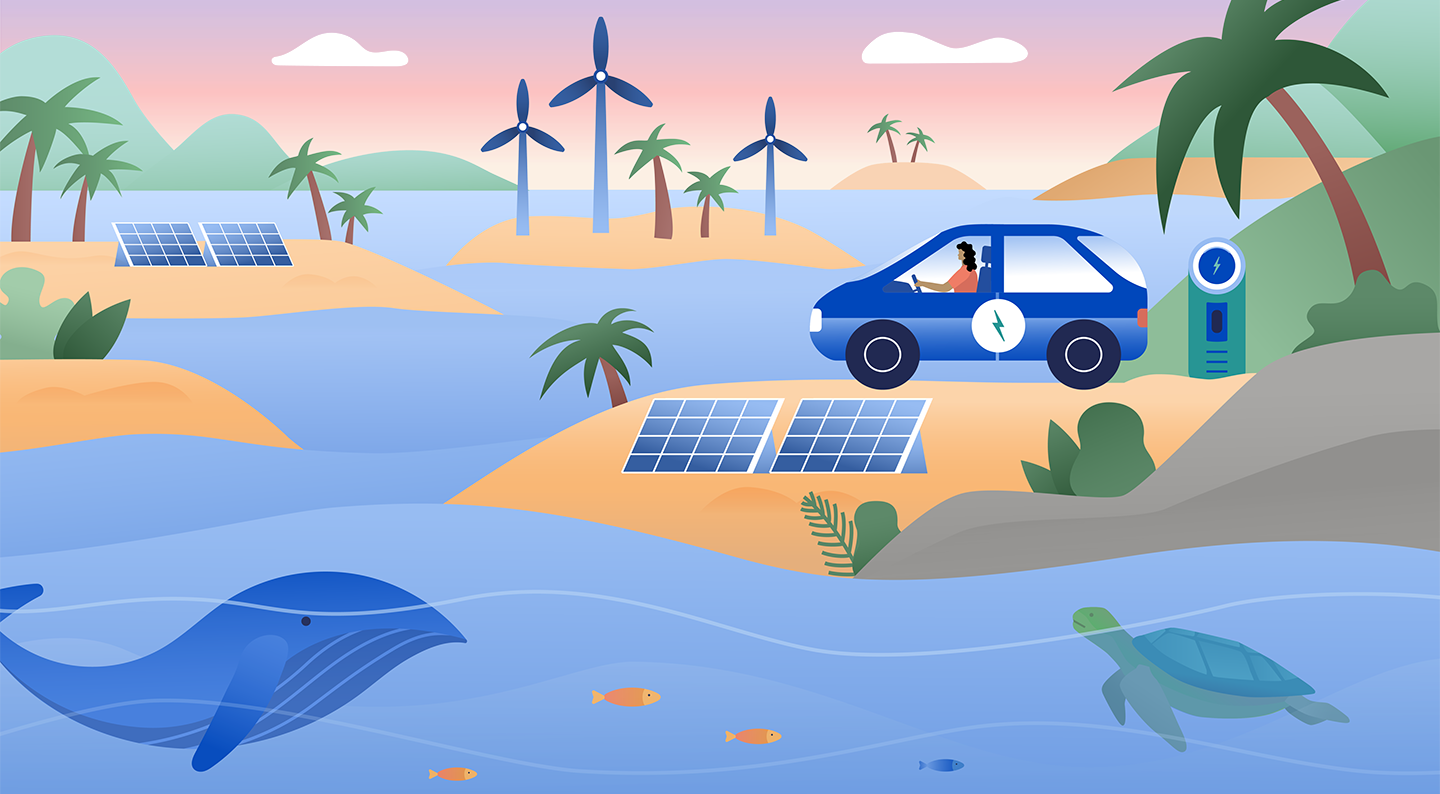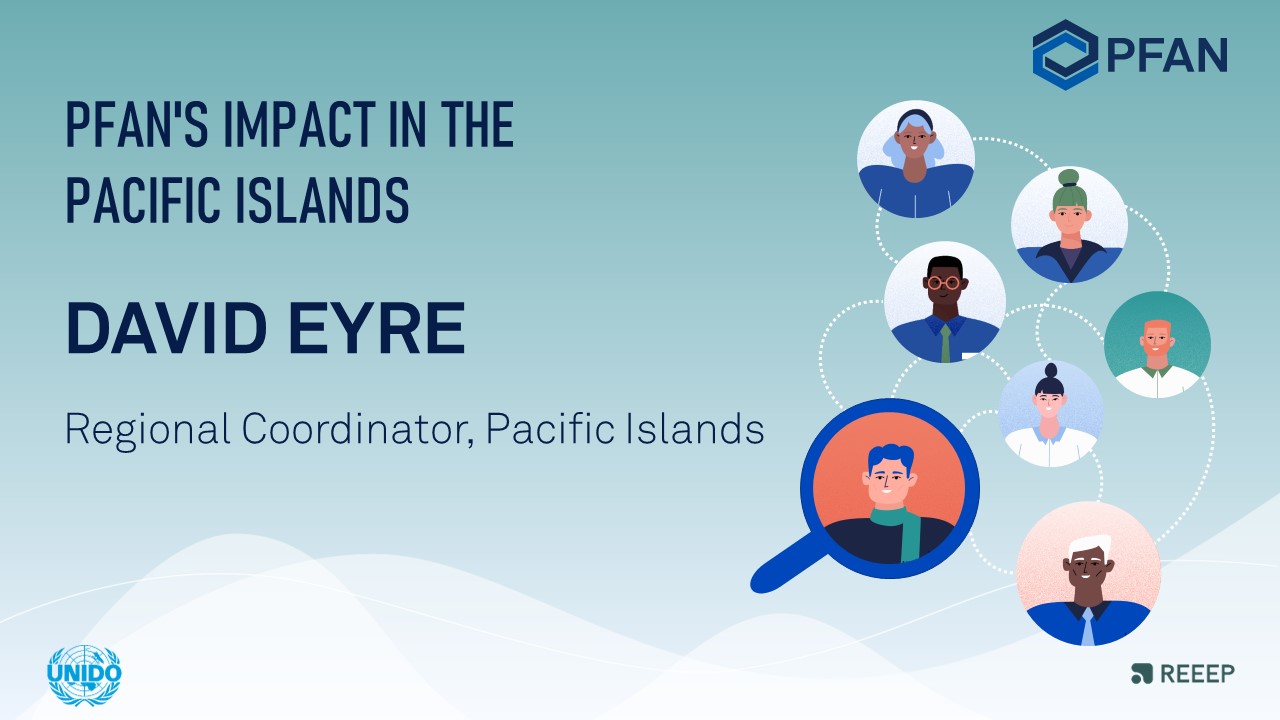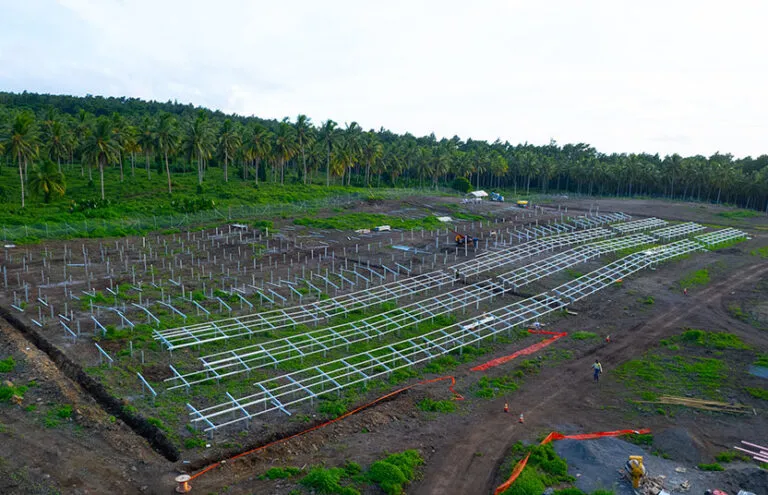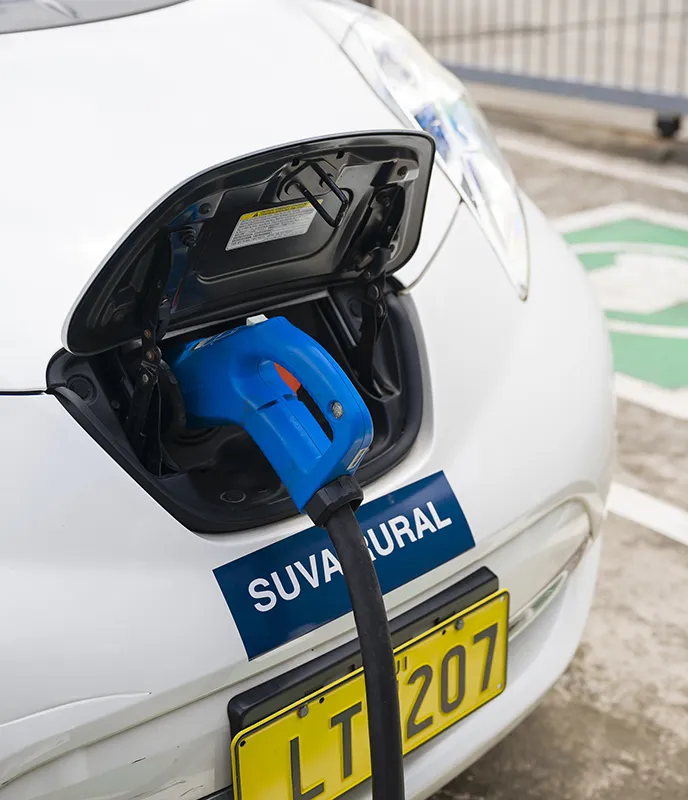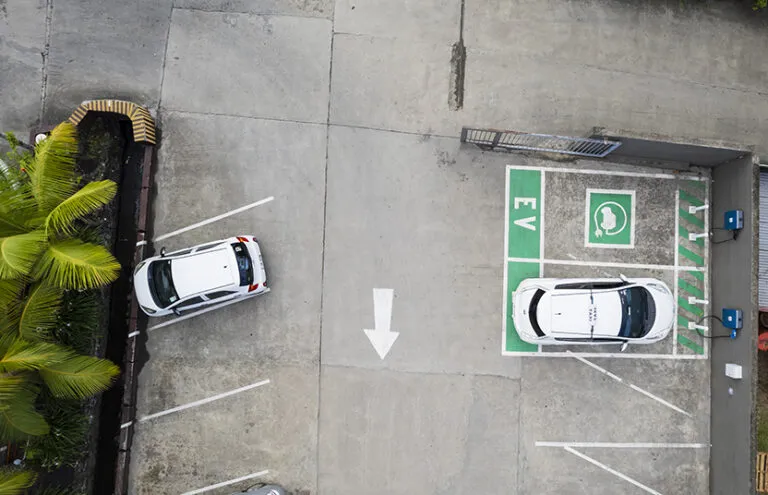PFAN IN THE PACIFIC ISLANDS 2016-2023
- .36 Total investment leveraged (USD million)
- 1 Total projects which mobilised finance
- 6 Projects provided PFAN support
- 99 CO2eq reduced per annum (tonnes)
Market developments in 2016-2023
The Pacific faces unique challenges of geography and demography (small markets, remote maritime locations, challenging logistics) which tend to amplify climate risks and impacts and which have demanded adaptation of PFAN’s standard business model, which has accordingly increasingly focussed on more programmatic project approaches as well as much more focussed/personalised origination channels as opposed to the open calls which run in other markets. For the most part, energy access in the region is relatively high, with nearly all households in countries like Niue, Nauru, Palau, Tonga and Tuvalu having access to electricity. However, it is expensive and often reliant on diesel generation (especially in more remote locations), leading to high household tariffs. This means the focus is on energy transition activities as countries look to decouple from the unpredictable costs and challenging logistics of fuel supply.
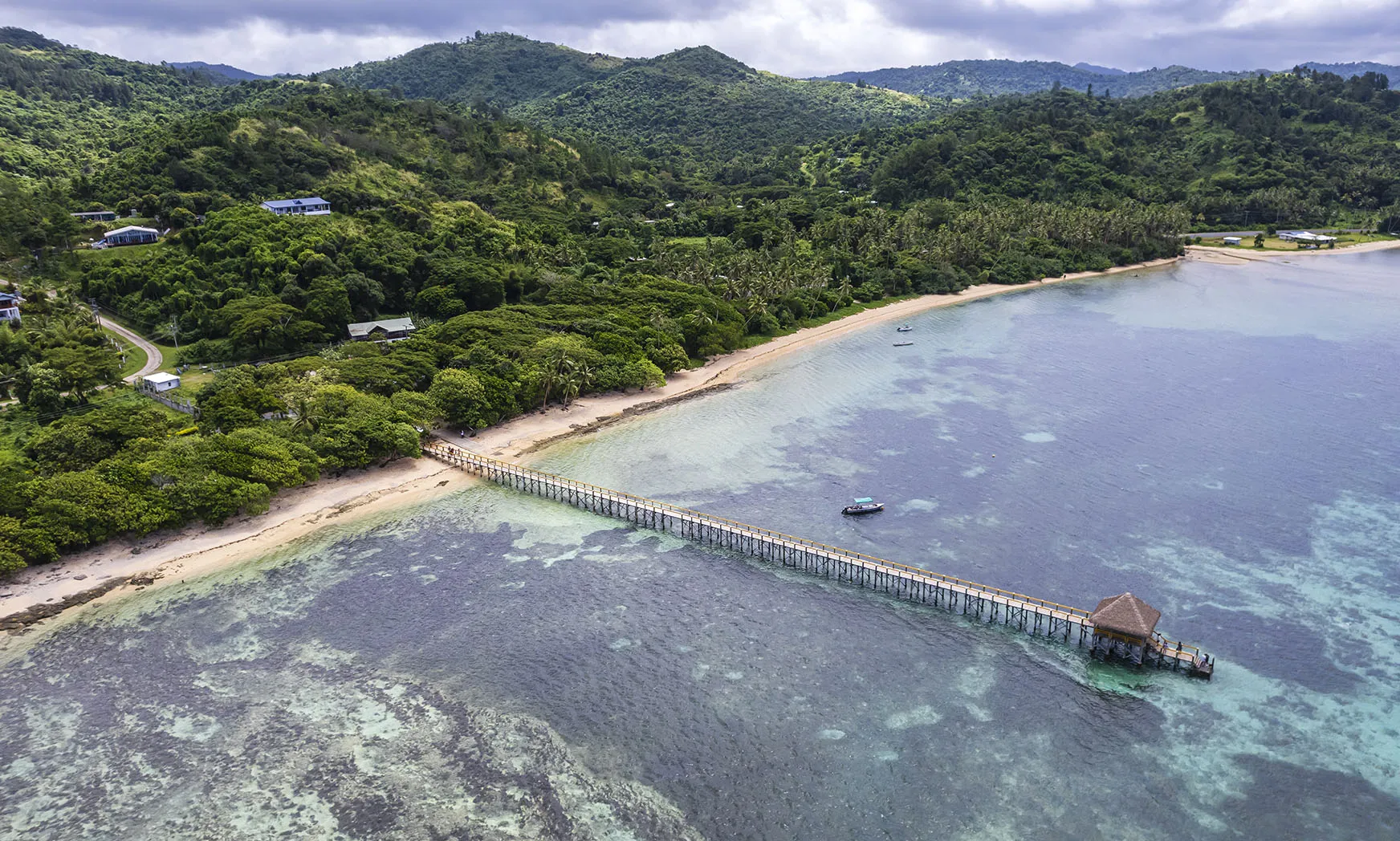
However, in countries like Vanuatu and the Solomon Islands, electrification rates remain low at about 20% or less and around only 13% in PNG; here, the focus is more on access. [1] Other challenges in the Pacific region include rising sea levels, salinisation and decreasing availability of fresh water, increased intensity and frequency of tropical storms, floods and drought, all of which have been attracting more awareness over recent years, leading to increased attention on adaptation from governments, donors and project developers. The other overarching trend in the region has been a drive to increase the involvement and capacity of the local private sector to play a more meaningful/enduring role in providing energy and climate solutions, and this has been the rationale for PFAN’s deepening engagement.
PFAN’s activities and highlights
As the newest addition to the PFAN network, PFAN Pacific began operations in 2021 with a focus on supporting climate and clean energy initiatives tailored to the unique challenges and opportunities faced by the Small Island Developing States (SIDS) in the Pacific region. The first two projects to receive PFAN support were based in Fiji, the principal country of PFAN Pacific’s operations. Fiji-based played a pivotal role in facilitating Noda Solar Initiative’s project readiness, providing assistance in developing vital project documents such as their financial model and business plan. Noda Solar aims to mitigate the market challenge of high electricity tariffs by enabling rural energy customers to acquire efficient solar home energy systems from which they can afford, own, operate and reap financial advantages, diverging from the prevalent reliance on government subsidies and marking a shift towards sustainable energy independence.
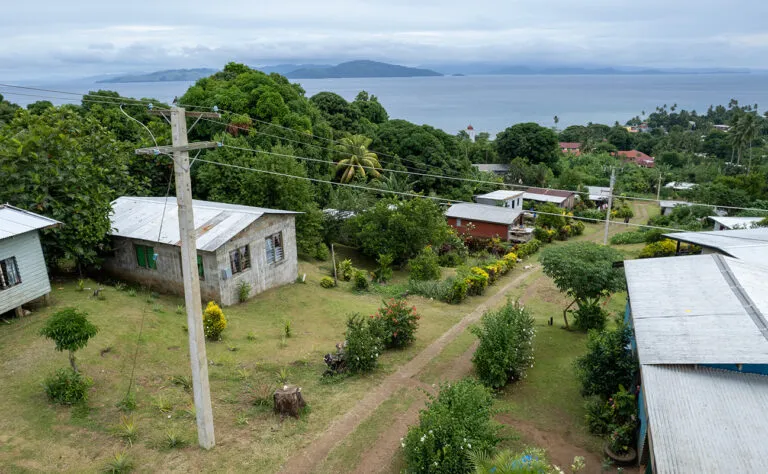
Further addressing the region’s needs, two projects from Sunergise Fiji Pte Limited have received PFAN support – Clay Energy Taveuni Solar Farm and Tokoriki Resort. The first is the only large-scale solar and battery energy storage system (solar + BESS) to be built in Fiji and will boast a 1MW + BESS solar farm on Taveuni Island, the third largest island in Fiji.
Their second project targets increased use of renewable energy in one of the main drivers of Fiji’s economy – tourism. It aims to upgrade the system installed at the Tokoriki Resort in 2014 with a new battery energy storage system and replace original PV modules with new higher efficiency modules, as well as the installation of a new ground mount array. With PFAN support this project successfully completed the first due diligence stage of the PFAN coaching process.
Clay Energy
- Location Fiji
- Sector and technology Solar/energy storage
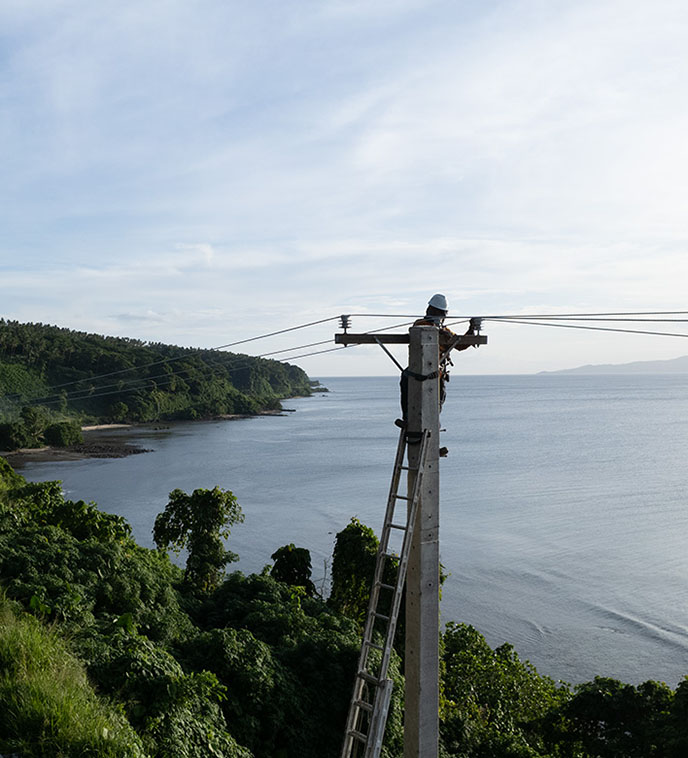
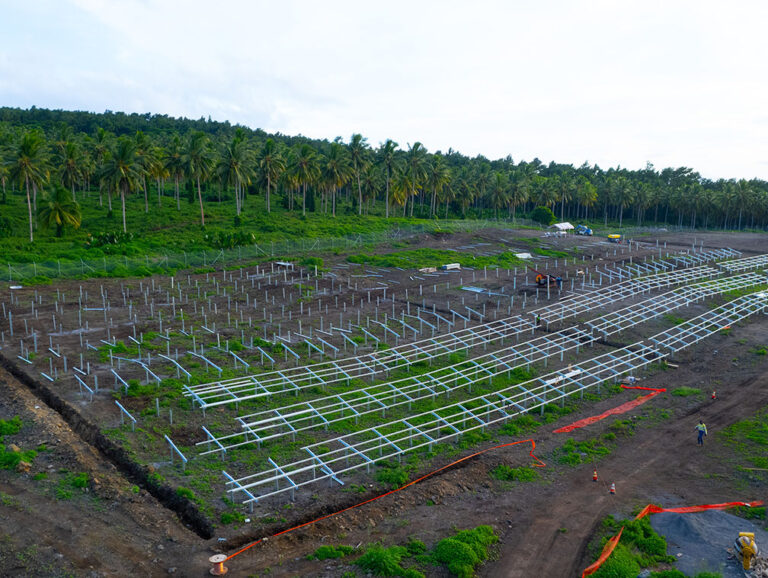

“PFAN aims to bring more private sector involvement in the Pacific in energy access and in climate, more generally, to open and create new markets for these companies and build their capacity to serve these markets.”
Another crucial factor in the economy is that sugar cane production counts for upwards of 87% of Fiji’s agricultural output. [1] The pilot project ‘’Rejuvenating Fiji’s cane farming industry’’ received PFAN support in the initial action plan/due diligence coaching stage. It aims to encourage Fiji to actively reduce farm carbon emissions and offset carbon into soil as part of Fiji’s climate change initiatives. Moreover, the project improves Fijian farming conditions, helps farmers earn additional streams of income through crop diversity and creates high-integrity carbon credits, and strengthens the community by building regional capabilities.
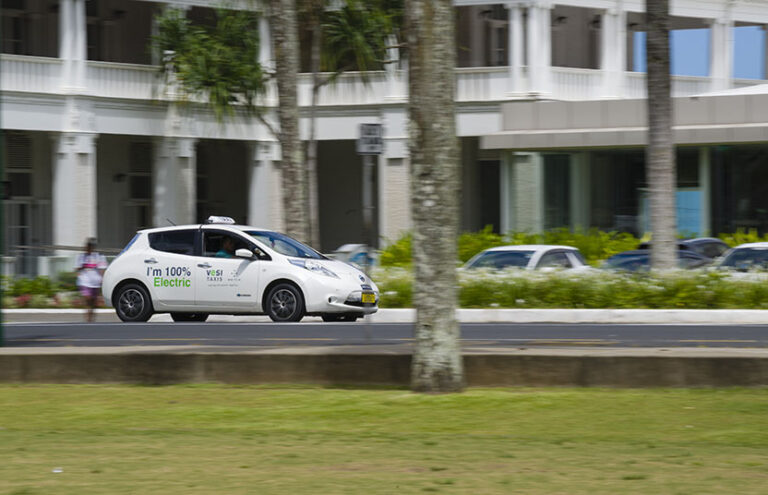
Since the start of PFAN Pacific, the regional network has grown to 15 highly skilled advisors located in Vanuatu, Solomon Islands, Fiji and Papua New Guinea. In 2022, PFAN welcomed a new Country Coordinator for Papua New Guinea. As a result of his outreach efforts, Village Women’s Financial Services Ltd became the first organisation to receive PFAN support in the country. The key role of this climate adaptation project is the provision of savings and credit facilities for women-owned and led micro and small businesses, as well as offering financial and business planning and management advisory services to individuals and businesses that are transitioning from the informal economic sector to the formal sector.
PFAN has several key partnerships in the region, among them the FREF (Fiji Rural Electrification Fund) Support Programme. This is a joint initiative with UNDP and the Fijian Government, as well as other stakeholders, to help FREF fulfil its mandate of electrifying the last 6% of the Fijian population which don’t currently have access to electricity, consisting of some 26.000 households across 399 communities on remote maritime islands. PFAN’s role is to develop a partly subsidised results-based private sector financing model/fund (RBF) for establishing and operating solar-powered mini-grids, which will be owned/operated by private sector energy service providers under concessions from FREF.
PFAN is also working with the private sector service providers to help prepare them for this opportunity. Design and implementation of the fund also entails working closely with other government ministries like the Climate Change Division, the Department of Energy and the Fiji Commerce and Competition Commission (the energy regulator in Fiji) as well as GGGI, USTDA, DFAT, MFAT and other development partners in the region.

David has accumulated over 25 years of experience in the business sector, with a consistent focus on utilising technology for commercial growth within the Pacific region. His background encompasses various industries, including telecommunications (e-payment, isp, and online web services), broadcast tv, and more recently, energy access, rural electrification, and green finance sectors.
Throughout his career, David has held roles in leadership, business development, technology operations management and project coordination. He believes his diverse experience equips him to support Pacific businesses in adopting green technologies and sustainable practices to address climate change challenges effectively.
David shares insights into PFAN’s impact in the Pacific
